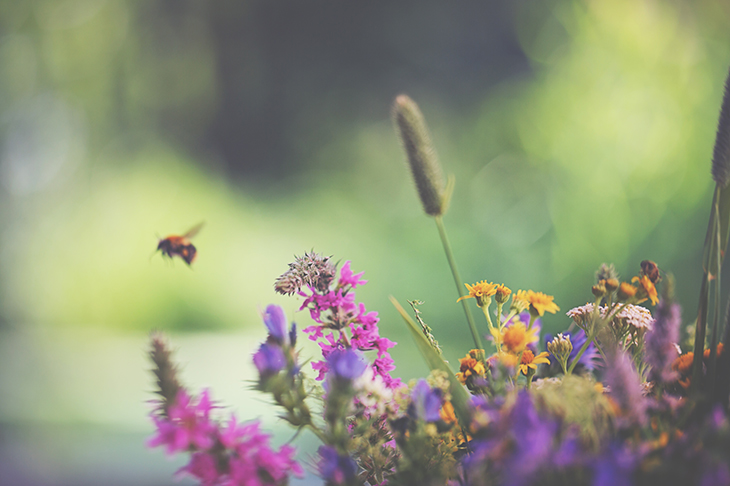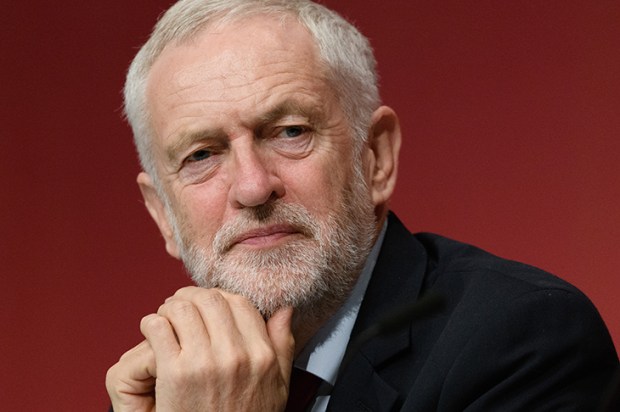‘Life pours back in.’ A score of us, listening to Charlie Burrell at the Knepp estate ten days ago, will always remember his words: so palpably true. We could see just what he meant as he took us through his work ‘re-wilding’ the estate in West Sussex where he and his wife, Isabella Tree, live at Knepp Castle. The family have owned and farmed these 3,500 acres for more than two centuries. Sir Charles, 10th Baronet, and Isabella are giving their all to this brave project, for which they have become pioneers, leaders, opinion–formers and evangelists.
And the religion is spreading. Everyone in the world of environmentalism talks about re-wilding now. But as (for me) with so much religion, I admire the people and applaud the practical results, while nursing doubts about the core theology. Christianity has something called ‘God’ at its centre. The re-wilders have something called ‘nature’. ‘It works in practice,’ as a now-forgotten economist once said, ‘but will it work in theory?’
Charlie Burrell has certainly converted me to the practice. I want projects like his to spread right through our islands; and, more, I’d like to see the possibilities that re-wilders can teach, touching the whole farming industry; influencing it from top to bottom; changing the way we see farming as a vocation.
Here, though, is my theological doubt. I remain to be convinced whether the expression ‘re-wilding’ — whether, indeed, the word ‘wild’ itself — has any clear meaning. I submit that we’re simply making something nice.
At Knepp we stayed for two nights in a yurt. Truly this was glamping not camping: a wonderful dwelling. The estate also offers wild camping, with a limited number of pitches spread across a field of long grass. There are cabins and huts, outdoor hot baths, and a big pond to swim in, all almost fully booked right through the season… and this (Charlie told us) proves how landowners and farmers can generate extra income. He showed us the sums and they were impressive. But he has Tamworth pigs, too, and cattle, the right number, to graze or rootle as necessary; and roe deer and fallow deer; and horses.
On our long walk we encountered what, from the passage above, you would expect. Not a single landscape, but many small terrains within the larger: open meadows, little bogs, ‘understory’ and ‘closed canopy’ woods. Not spectacular, nothing took your breath away, but it was gentle, various, and sweet — and so very rich. We saw a willow-wood where the rare Purple Emperor butterfly now breeds, and some dull scrubland where diversity was beginning to come back; and a place where pigs rootle and cattle graze, and places where they don’t. Research students were counting insects as we passed.
Knepp felt like a little world, entire unto itself. Everywhere there were insects; everywhere there was birdsong. ‘Life pours back in,’ Charlie repeated. ‘Britain is one of the most nature-depleted countries in the world,’ he added; and returning from this mini-Eden I understood as I’d never understood before what green deserts much even of my native Peak District, with its ripped-up and re-sown monoculture high-yield grass, can be — though to Duke of Edinburgh Award Scheme townie teenagers, this is ‘countryside’, ‘the wild’, as they suppose. And I remembered how there was lark song in meadows where I walked 30 years ago, and now there is none.
Please understand, then, that to my view everything Burrell is doing, everything, seems to me good, and the more of this patchwork of small landscapes within the larger that we can spread across our country, the better. It works in practice.
But in theory? There was a short sentence Charlie kept repeating. One of the reasons he kept repeating it (I suspect) was to convince himself of a dodgy proposition he thinks he needs as a major premise to his argument. ‘Process not outcome,’ he kept saying. Within that sentence there hide both an assertion and a denial. The assertion is that what you need to do to ‘re-wild’ is effectively a kind of controlled release of the forces of nature. The denial is that Man — in this case he himself — should wish to impose a shape upon the wild places we love. The assumption is that it will all happen naturally if we let it, and that we will not dislike what happens.
Here, then, lies the heresy of many of the most convinced environmentalists. They seek to deny that human beings are a species of animal along with all the other species. Denying that we are part of nature, therefore they think we can ‘spoil’ nature. But unless we are divine we are just another animal, an incredibly successful species, like rats, or locusts. We cannot by definition act against nature; and if we desertify our planet (as the dandelion carried on the feet of wide-wandering seabirds was threatening the ‘pristine’ vegetation of remote, sub-Antarctic Kerguelen Island where I wintered nearly 20 years ago), then ‘nature’ has done this.
Deserts are nature, too. Much moorland which we now seek to preserve may result from what environmentalists call a ‘catastrophic shift’ when a balance tips and diversity nosedives beyond restitution. Humans can trigger catastrophic shifts, but so can elephants. All this is ‘nature’. Species extinction is ‘nature’. Our messing up our planet’s climate is ‘nature’. In truth, ‘nature’ is so every-thing that it is nothing, a pointless word, like ‘wild’ and, by inference, ‘re-wild’. Is the pasture created by human liming on Pennine moorland ‘wild’? Or was the heather mono-culture the ‘wild’ state? Or the woodland which, cut down, became moorland?
To speak of ‘process not outcome’ is to deny the truth that there are outcomes we want and outcomes we don’t and we’re now far too powerful not to take a view. Man as an animal has acquired the greatest mastery of Earth’s environment that our planet has known. We cannot abdicate responsibility for outcome. This planet is our garden. I want our garden to look like the Knepp estate from the door of my yurt. But that’s an outcome. Process must serve it, and we cannot duck instrumentality. It is for us to debate, decide — and even design.
Got something to add? Join the discussion and comment below.
Get 10 issues for just $10
Subscribe to The Spectator Australia today for the next 10 magazine issues, plus full online access, for just $10.
You might disagree with half of it, but you’ll enjoy reading all of it. Try your first month for free, then just $2 a week for the remainder of your first year.















Comments
Don't miss out
Join the conversation with other Spectator Australia readers. Subscribe to leave a comment.
SUBSCRIBEAlready a subscriber? Log in